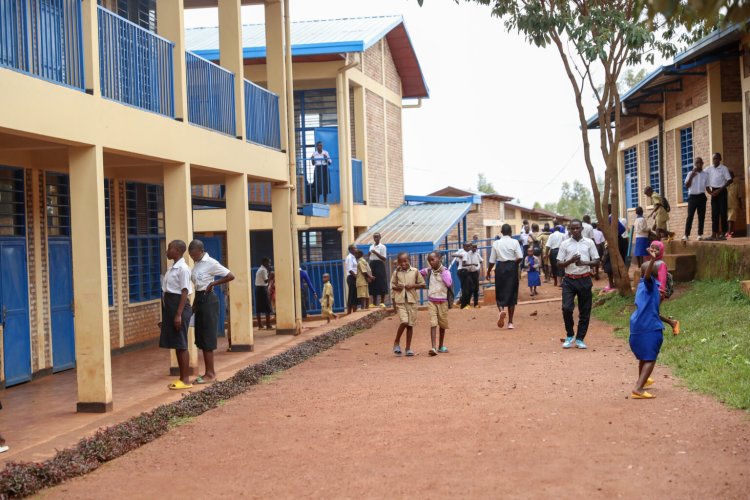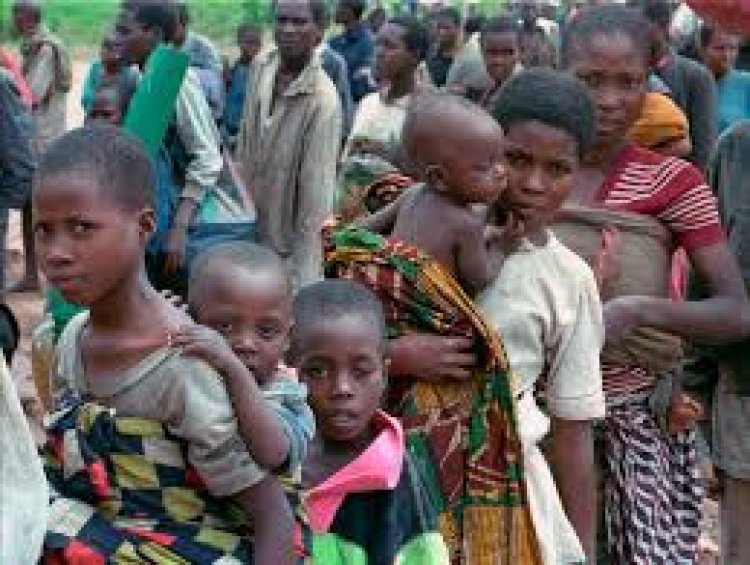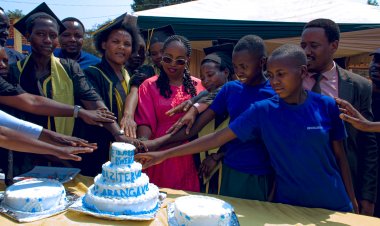
Refugees and asylum-seekers in Rwanda have access to the national Rwandan education system at all levels: pre-primary, primary, secondary, TVET and higher education.
The Ministry of Education (MINEDUC) in rwanda coordinates education policies, strategies and programmes at national level and is supported by affiliated entities including the following: The Rwanda Basic Education Board (REB), The National Examination and School Inspection Authority (NESA), The Rwanda Technical Vocational Education and Training Board (RTB), The University if Rwanda (UR), Rwanda Polytechnic, Rwanda National Commission for UNESCO (CNRU), The Higher Education Council (HEC), and Decentralized/Local entities (District, Sector, Cell) level education.
Public and government-aided schools are free of charge for refugees and Rwandan nationals.Despite this parental contributions are required for the cost of school feeding in line with the national school-feeding guidelines which standardize school feeding and parental contribution across different level of education. All school-going children are provided hot meal at school. The Government contributes to the cost of education and school feeding for students in public and Government-subsidized pre-primary, primary, general, or technical and vocational secondary schools. Refugee students who want to attend university normally have to find funds such as through scholarships as the national study loan is not accessible to refugees & asylum seekers.The cost of school uniforms, scholastic materials, and national examination fees are also expected to be covered by the parents or caregivers of the children.
For refugee schools located in or near refugee camps, UNHCR and partners subsidize the cost of school feeding and provide scholastic materials to vulnerable refugee families. For more information, please contact your nearest school or the UNHCR office in your locality.
- Pre-Primary: The entry age to pre-primary is 3 years old – and a child who completes a pre-primary cycle is given a document that confirms completion of the cycle.
- Primary: The official entry-age to primary education is 6 years old. Primary education is compulsory and free both in public and Government-subsidized schools. Primary education ends with a national examination with the award of a certificate. The successful learner continues with the first cycle of general secondary education.
- Secondary: The official age of admission to secondary education is 12 years old. Secondary education has two cycles – the first cycle is also called ordinary level of education which lasts for 3 years and is completed by the national examination with the award of an ‘O’ level certificate. Successful learner will continue with the 2nd cycle of general or technical and vocational secondary education. The 2nd cycle of secondary education is comprised of three fields of study as follows:
- a combination of various courses of science, humanities, and languages.
- a combination of professional courses
- technical and vocational education from level 3 to level 5.
- At the end of the 2nd cycle, students will sit for a national examination and get Advanced level certificate which is a requirement for admission to university level education. Post-secondary education opportunities are available at the vocational, and university levels at the cost of the individual student or through scholarship.
Refugees who attended general education (primary and secondary) outside Rwanda can apply for the equivalency certificate provided by the National Examination and School Inspection Authority (NESA) by using online services platform ‘’ irembo’’.
The Ministry of Education (MINEDUC) in rwanda coordinates education policies, strategies and programmes at national level and is supported by affiliated entities including the following: The Rwanda Basic Education Board (REB), The National Examination and School Inspection Authority (NESA), The Rwanda Technical Vocational Education and Training Board (RTB), The University if Rwanda (UR), Rwanda Polytechnic, Rwanda National Commission for UNESCO (CNRU), The Higher Education Council (HEC), and Decentralized/Local entities (District, Sector, Cell) level education.
check on youtube : https://youtu.be/-E8N8JnPVYA

 English
English  Kinyarwanda
Kinyarwanda 













